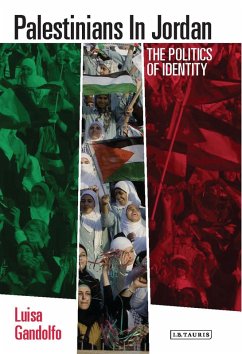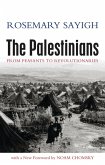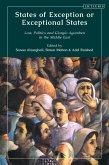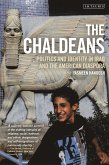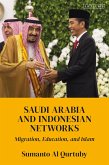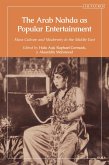60 per cent of Jordanians are of Palestinian origin,a statistic which has propelled Jordan into the role of both player and pawn in regional issues such as the birth of the state of Israel,the prolonged Israel-Palestine conflict, the ascent and decline of Arab nationalism and the subsequent rise of political Islam and radicalism. Exploring Jordan's diverse Palestinian communities, Luisa Gandolfo illustrates how the Palestinian majority has been subject to discrimination,all the while also playing a defining role in shaping Jordanian politics,legal frameworks and national identity. The conflicts of 1948 and 1967,the civil unrest following Black September in 1972 and the uprisings of 1988 and 2000 have all contributed to a fractious Jordanian-Palestinian relationship. In Palestinians in Jordan,Gandolfo examines the history of this relationship,looking at the socio-political circumstances,the economic and domestic policies,the legal status of Palestinians in Jordan and the security dimension of Jordan's role in the region.
She argues that policies put in place over the last century have created a society that is marked by high levels of inter-faith cohesion,as evidenced by the success and integration of minority Christian communities. She goes on to suggest that society divides along lines of ethnic and nationalist loyalty,between Jordanians and Palestinians,while domestic politics become increasingly fractious with the growth of Islamist groups that have gained grassroots appeal,especially in the refugee camps. Palestinians in Jordan looks through the kaleidoscope of Palestinian-Jordanian identities that accommodate a complex and overlapping web of different religious affiliations, mixed socio-economic conditions and the experience of exile reconciled with daily life in Jordan. At the same time,identities of these communities continue to be rooted in an attachment to the concept of Palestine,and the unifying force of the struggle against Zionism. These layers have made the versatile and fluid nature of identities essential,affording a fascinating study in inter-communal dynamics and nationalism.
It is this which makes Palestinians in Jordan an important resource for those researching the Israel-Palestine conflict as well as for students of the Middle East,Politics,Anthropology and Gender with an interest in identity.
She argues that policies put in place over the last century have created a society that is marked by high levels of inter-faith cohesion,as evidenced by the success and integration of minority Christian communities. She goes on to suggest that society divides along lines of ethnic and nationalist loyalty,between Jordanians and Palestinians,while domestic politics become increasingly fractious with the growth of Islamist groups that have gained grassroots appeal,especially in the refugee camps. Palestinians in Jordan looks through the kaleidoscope of Palestinian-Jordanian identities that accommodate a complex and overlapping web of different religious affiliations, mixed socio-economic conditions and the experience of exile reconciled with daily life in Jordan. At the same time,identities of these communities continue to be rooted in an attachment to the concept of Palestine,and the unifying force of the struggle against Zionism. These layers have made the versatile and fluid nature of identities essential,affording a fascinating study in inter-communal dynamics and nationalism.
It is this which makes Palestinians in Jordan an important resource for those researching the Israel-Palestine conflict as well as for students of the Middle East,Politics,Anthropology and Gender with an interest in identity.

